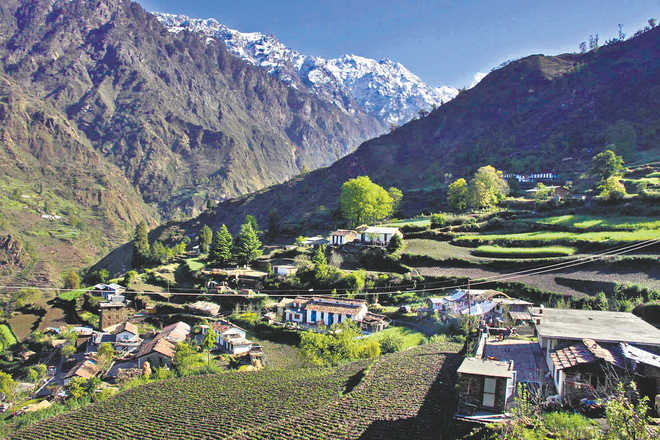Uttarakhand set to disband Revenue Police – after centuries
Neena Sharma in Dehradun
For more than a century, armed with a jhola containing a measurement chain and a register, the hill Patwari representing the Revenue Police, has been going about his job of a policeman and a land manager with a consummate ease of a juggler in the mountainous parts of Uttarakhand.
Soon this unique practice of Revenue Policing will become a thing of the past. In a recent ruling, the Nainital High Court has given six months to the state government to abolish the Revenue Police, a legacy of the British Raj prevalent in the state since 1816.
“We are looking at all pros and cons regarding the judgment. Our response will be in keeping with various aspects of the needs of society and our system at work,” said Madan Kaushik government spokesperson.
Also called Gandhi Police, the Revenue Police have been responsible for the law and order in 60% area of the state. The writ of the Revenue Police runs in approximately 40% of the population that mostly lives in the mountainous areas of Garhwal and Kumaon regions. Leaving aside crime of heinous nature, all other crime-related FIRs are lodged by the patwari and he is even vested with the power to detain a person at his two-storey patwari chowki, for questioning.
There are different views about the start of the dual practice of managing revenue affairs and policing. A few scholars say that till about 1790 during the rule of the Chand dynasty in Kumaon, the Thokdars and Pradhans performed functions of the police. It was during the British rule that the practice became more entrenched.
The British officers’ major concern was about collection of lagan or the revenue tax. They strengthened the ingenious practice of entrusting patwaris with the job of maintaining law and order along with the job of land maintenance. “At the end of the day, he was more interested in the collection of tax and as the region was peaceful with only few incidents of crime. As such Lekhpals, Kanoongos and Patwaris were vested with the powers and functions of police officers to carry out investigation in offences that came to light,” said Shekhar Pathak, a social activist.
In 1816, the then British commissioner of Kumaon had created 16 posts of patwaris entrusting with the task of maintaining revenue records, collection of revenue and policing. In 1874 the posts of patwari were notified in the Hill Pattis. As Tehri, Dehradun and Uttarkashi were ruled by local feudal lords, the patwaris were not appointed.
“The post of patwari was well sought after in those days, in fact the ancestors of former chief minister Vijay Bahuguna were said to be in the service of the British as patwaris,” says Jay Singh Rawat, a senior journalist.
In the present time, according to the Board of Revenue (Uttarakhand), there are around 1,216 patwari chowkis or revenue posts. In around 750 revenue circles, there is partial work of policing and revenue.
Notwithstanding the HC order, a view in the political circles had also gained ground about disbanding the Revenue Police and to bring the entire state under the purview of the regular police.
Soon after the June 2013, aspersions were cast on the capabilities of the Revenue Police to tackle disasters of this dimension. Former chief minister Vijay Bahuguna had then remarked that there would have been fewer casualties had there been the regular police. But it soon came to light that the area that was in the throes of floods was already being manned by the regular police.
The patwaris who are part of the Revenue Police are given one-year police training. Yet they cannot match up with the training and the resources used by the regular police, so it may seem.
“When you look at the changing pattern of crime as well as the resources that the policemen use for investigation in the criminal cases and compare it with our Revenue Police, then they do not match up. Our Revenue Police do not stand a chance, they do not have surveillance and other gadgets for solving cases,” says Jay Singh Rawat.
On the other hand, there are others who praise the role of the Revenue Police for their role in maintaining harmony in the villages, “They may not have the required resources but they are more approachable and are trusted by the villagers,” says SS Pangtey, former bureaucrat. He also lends a cautious note to the issue of abolishing the Revenue Police. “The government will require at least Rs 1,000 crore to set new police stations which will put a strain on the state,” he said.









